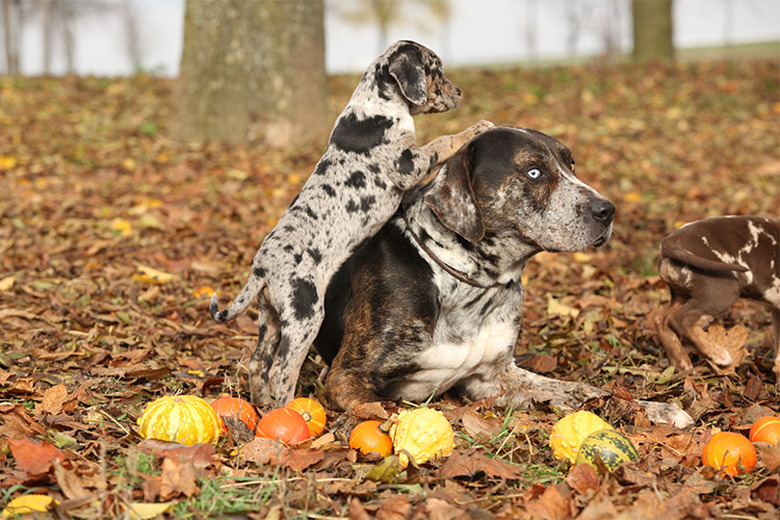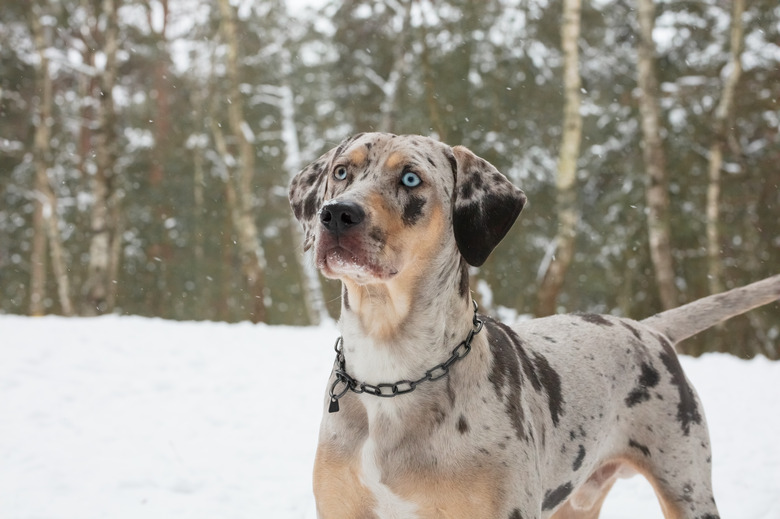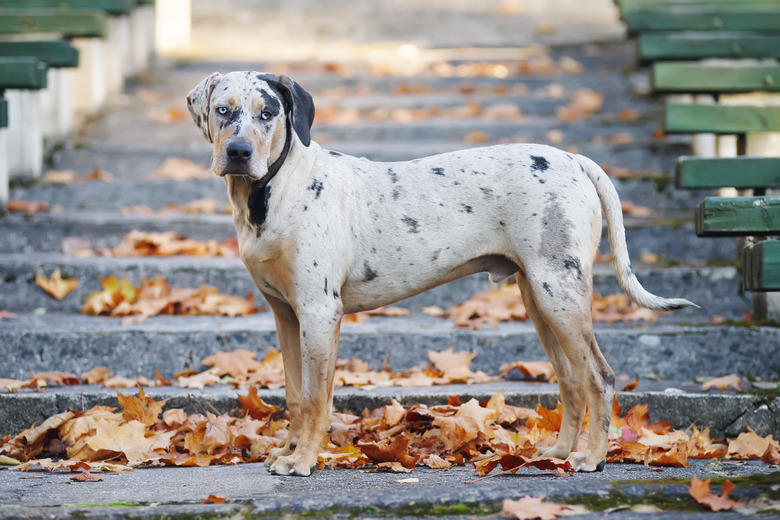Common Problems With Catahoulas
Catahoula leopard dogs were bred for work, so they need a lot of exercise. Problems can arise when their owners don't comprehend the tremendous need for stimulation that these dogs require. These dogs require exercise, attention, and space. Catahoula health concerns include hip dysplasia, but they have few genetic issues.
Catahoula leopard dog origins
Catahoula leopard dog origins
In the state of Louisiana, the breed also goes by the names Catahoula cur, Catahoula hound, and Catahoula hog dog. Catahoula-type dogs predate the arrival of the first European settlers in Louisiana, descending from Native American breeds. It's believed that the Native American "wolf dog" was crossed with greyhounds, mastiffs, and bloodhounds, brought over by early Spanish settlers, to create the Catahoula.
These dogs created living fences around cattle and pigs, driving them while instructed by a herder. Also used as a hunting dog, this brave, medium-size Southern dog breed is still used in the Southern U.S. for taking down feral hogs.
Exercise: the Catahoula health concern
Exercise: the Catahoula health concern
Considering that one of the dog's original purposes was driving cattle and pigs to market as well as hunting wild hogs, it's no surprise that the Catahoula requires a great deal of exercise. If you don't have the time to take this dog for extensive exercise daily, it's best to find another breed. One to two hours a day of hard running is the minimum required for these dogs. All that pent-up energy needs unleashing, so it's common for the underexercised Catahoula to exhibit seriously destructive behavior.
Catahoula socialization issues
If raised with cats from puppyhood, your Catahoula might get on just fine with the household felines, although strange cats are ripe for chasing. However, these dogs don't necessarily play well with other canines. If you want to keep another dog in your home with your Catahoula, it should be the opposite sex. That's true even if both are spayed or neutered.
Because dog aggression often occurs in the breed, be careful when encountering other canines while out on walks. It's probably best to avoid the dog park unless you muzzle your pet.
Since the catahoula needs so much exercise, it's the rare member of the breed who does well in an apartment or townhouse. He can do well in the country or suburbs as long as you have a large, fenced-in area for him. You'll need a high fence of at least 5 feet to contain this agile animal. Catahoulas are excellent swimmers and do best when assigned a job.
Dominance: the Catahoula behavior issue
Dominance: the Catahoula behavior issue
It takes a tough dog to control cattle or bring down hogs. Catahoulas are a dominant breed and are not a good choice for the timid or novice dog owner. Your dog must become well socialized to become gentle and trustworthy in the household. Obedience training that embraces positive reinforcement is strongly recommended.
Be firm but gentle when disciplining your Catahoula. Because of his dominant nature, if he feels threatened by your discipline, he might become aggressive. Catahoulas are very territorial and are not fully mature until they are 2 years old.
Catahoula health issues
Catahoula health issues
Overall, the Catahoula doesn't suffer from many genetic health issues. Possible Catahoula health issues include hip dysplasia, resulting from a congenital malformed hip joint. Without surgical repair, it can lead to early arthritis in the dog. While less active dogs can do well without surgery for the condition, that might not be true of the Catahoula. The breed appears in various colors, but when considering a white Catahoula, know that they're prone to deafness like many white dogs.


